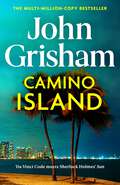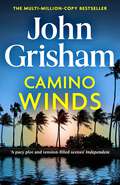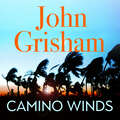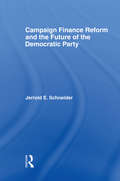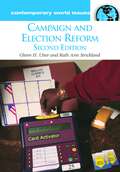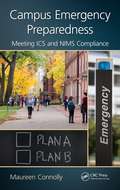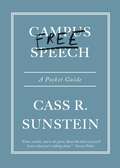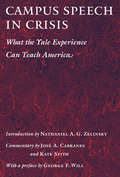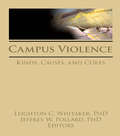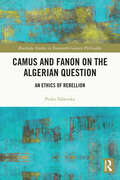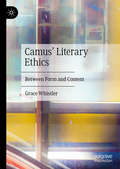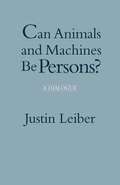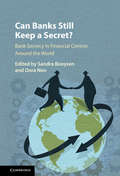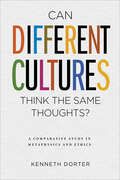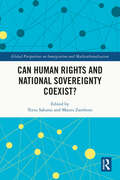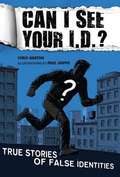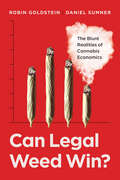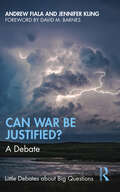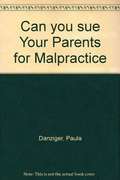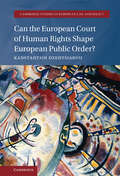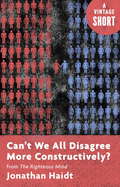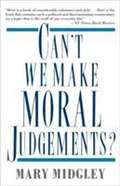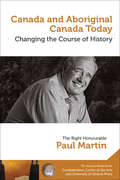- Table View
- List View
Camino Island: Sunday Times bestseller (Camino Ser. #1)
by John GrishamA brilliant new series from the number one global thriller writer, John Grisham.SOMEONE IS ABOUT TO MAKE A KILLING ...The most daring and devastating heist in literary history targets a high security vault located deep beneath Princeton University.Valued at $25 million (though some would say priceless) the five manuscripts of F Scott Fitzgerald's only novels are amongst the most valuable in the world. After an initial flurry of arrests, both they and the ruthless gang of thieves who took them have vanished without trace.Now it falls to struggling writer Mercer Mann to crack a case that has thwarted the FBI's finest minds.***COMING SOON - CAMINO GHOSTS: PRE-ORDER NOW! *** Praise for Camino Island'A bewitching blend of high-stakes spying mission and summer romance, with a fascinatingly ambiguous central character' - The Sunday Times'The gripping plot will have you devouring the chapters in such a frantic fashion you'll begin to wonder if you are somehow complicit in this perfect crime' - Heat'Grisham shows charm, wit and a light touch' - The Times
Camino Winds: The Ultimate Summer Murder Mystery from the Greatest Thriller Writer Alive
by John GrishamThe Sunday Times bestseller from international bestseller John Grisham. Is a Perfect Storm the Perfect Time for a Murder? 'Another gem from John Grisham' Observer When Hurricane Leo threatens Florida's Camino Island, the Governor is quick to issue an evacuation order. Most residents flee but a small group of diehards decide to ride it out. Amongst them is Bruce Cable, proprietor of Bay Books in downtown Santa Rosa.The hurricane is devastating: homes and condos are levelled, hotels and storefronts ruined, streets flooded, and a dozen people are killed. One of the victims is Nelson Kerr, a friend of Bruce's who wrote timely political thrillers. But evidence suggests that the storm wasn't the cause of Nelson's death - he had received several mysterious blows to the head.Who would want Nelson dead? The local police are overwhelmed with the aftermath of the storm and in no condition to handle the case. Bruce begins to wonder if the shady characters in Nelson's novels were more fact than fiction. And somewhere on Nelson's computer is the manuscript of his new novel - could the key to the case be right there, in black and white? Bruce starts to look into it and what he finds between the lines is more shocking than any of Nelson's plot twists - and far more dangerous.Gripping, compelling and pacy, this exceptional thriller from international bestseller John Grisham is the perfect escapist read this summer.Praise for Camino Winds:'In American icon John Grisham's new novel, Camino Winds, an odd assortment of mystery and crime authors, some of them felons themselves, discover one of their colleagues has been murdered during the fury of a massive hurricane-the perfect crime scene' Delia Owens, author of Where the Crawdads Sing'The Camino Island series, featuring trouble-prone bookseller Bruce Cable, is a perfect escapist mix of detective action, insider riffs on the literary world - and even a little romance' Mail on Sunday'Camino Winds has all the usual Grisham hallmarks - a pacy plot and tension-filled scenes' Independent'Another compelling read from Grisham, and will satisfy old fans and please new readers alike' Press Association'The novel has enough plot twists to keep you engaged' The Herald 350+ million copies, 45 languages, 9 blockbuster films:NO ONE WRITES DRAMA LIKE JOHN GRISHAM
Camino Winds: The Ultimate Summer Murder Mystery from the Greatest Thriller Writer Alive
by John GrishamWhen Hurricane Leo threatens Florida's Camino Island, the Governor is quick to issue an evacuation order. Most residents flee but a small group of diehards decide to ride it out. Amongst them is Bruce Cable, proprietor of Bay Books in downtown Santa Rosa.The hurricane is devastating: homes and condos are levelled, hotels and storefronts ruined, streets flooded, and a dozen people are killed. One of the victims is Nelson Kerr, a friend of Bruce's who wrote timely political thrillers. But evidence suggests that the storm wasn't the cause of Nelson's death - he had received several mysterious blows to the head.Who would want Nelson dead? The local police are overwhelmed with the aftermath of the storm and in no condition to handle the case. Bruce begins to wonder if the shady characters in Nelson's novels were more fact than fiction. And somewhere on Nelson's computer is the manuscript of his new novel - could the key to the case be right there, in black and white? Bruce starts to look into it and what he finds between the lines is more shocking than any of Nelson's plot twists - and far more dangerous. (P)2020 Penguin Random House LLC
Camino Winds: The Ultimate Summer Murder Mystery from the Greatest Thriller Writer Alive (Camino Ser. #2)
by John GrishamThe Sunday Times bestseller from international bestseller John Grisham. Is a Perfect Storm the Perfect Time for a Murder? 'Another gem from John Grisham' Observer When Hurricane Leo threatens Florida's Camino Island, the Governor is quick to issue an evacuation order. Most residents flee but a small group of diehards decide to ride it out. Amongst them is Bruce Cable, proprietor of Bay Books in downtown Santa Rosa. The hurricane is devastating: homes and condos are levelled, hotels and storefronts ruined, streets flooded, and a dozen people are killed. One of the victims is Nelson Kerr, a friend of Bruce's who wrote timely political thrillers. But evidence suggests that the storm wasn't the cause of Nelson's death - he had received several mysterious blows to the head. Who would want Nelson dead? The local police are overwhelmed with the aftermath of the storm and in no condition to handle the case. Bruce begins to wonder if the shady characters in Nelson's novels were more fact than fiction. And somewhere on Nelson's computer is the manuscript of his new novel - could the key to the case be right there, in black and white? Bruce starts to look into it and what he finds between the lines is more shocking than any of Nelson's plot twists - and far more dangerous.Gripping, compelling and pacy, this exceptional thriller from international bestseller John Grisham is the perfect escapist read this summer.Praise for Camino Winds:'In American icon John Grisham's new novel, Camino Winds, an odd assortment of mystery and crime authors, some of them felons themselves, discover one of their colleagues has been murdered during the fury of a massive hurricane-the perfect crime scene' Delia Owens, author of Where the Crawdads Sing 'The Camino Island series, featuring trouble-prone bookseller Bruce Cable, is a perfect escapist mix of detective action, insider riffs on the literary world - and even a little romance' Mail on Sunday 'Camino Winds has all the usual Grisham hallmarks - a pacy plot and tension-filled scenes' Independent 'Another compelling read from Grisham, and will satisfy old fans and please new readers alike' Press Association 'The novel has enough plot twists to keep you engaged' The Herald 350+ million copies, 45 languages, 9 blockbuster films:NO ONE WRITES DRAMA LIKE JOHN GRISHAM
Campaign Finance Reform and the Future of the Democratic Party
by Jerrold E SchneiderCampaign Finance Reform and the Future of the Democratic Party offers a new interpretation of the dynamics of the American political system. Schneider explains how campaign finance reform would enable the Democratic Party to reverse the decades-long decline in their voter base. Reform would incentivize the Party to reallocate $1 trillion per year in contribution-driven waste to popular programs, without which the kind of progressive economic policies that have always energized the Democratic base will continue to be starved of resources. Schneider shows that, contrary to conventional wisdom, writing an effective reform law that can't be loopholed is feasible. So is a set of specific measures to force Congress to enact an effective law. In the end, reform holds the key to the democratic character and dynamics of the political system. Reform also holds the key to investments for future U.S productivity growth and the reduction of inequality.
Campaign and Election Reform: A Reference Handbook (2nd edition)
by Glenn H. Utter Ruth Ann StricklandPolitical scientists Utter (Lamar U.) and Strickland (Appalachian State U.) set out the history of controversy about elections in the US and the problems and solutions being articulated in its current manifestation. They also compare democracies in Western Europe (of which Poland now seems to be a member) and provide a chronology, biographical sketches, date and documents, a directory of organizations, and print and non-print resources. The series is designed to provide background material for high school debates and for general readers interested in particular political issues.
Campus Emergency Preparedness: Meeting ICS and NIMS Compliance
by Maureen ConnollyAn easily digestible guide, Campus Emergency Preparedness: Meeting ICS and NIMS Compliance helps you develop and organize emergency operation plans. It incorporates the key components recommended by the Federal Emergency Management Agency (FEMA) and the US Department of Education and outlines the roles and responsibilities of campus personnel befor
Campus Free Speech: A Pocket Guide
by Cass R. SunsteinFrom renowned legal scholar Cass R. Sunstein, a concise, case-by-case guide to resolving free-speech dilemmas at colleges and universities.Free speech is indispensable on college campuses: allowing varied views and frank exchanges of opinion is a core component of the educational enterprise and the pursuit of truth. But free speech does not mean a free-for-all. The First Amendment prohibits “abridging the freedom of speech,” yet laws against perjury or bribery, for example, are still constitutional. In the same way, valuing freedom of speech does not stop a university from regulating speech when doing so is necessary for its educational mission. So where is the dividing line? How can we distinguish reasonable restrictions from impermissible infringement?In this pragmatic, no-nonsense explainer, Cass Sunstein takes us through a wide range of scenarios involving students, professors, and administrators. He discusses why it’s consistent with the First Amendment to punish students who shout down a speaker, but not those who chant offensive slogans; why a professor cannot be fired for writing a politically charged op-ed, yet a university might legitimately consider an applicant’s political views when deciding whether to hire her. He explains why private universities are not legally bound by the First Amendment yet should, in most cases, look to follow it. And he addresses the thorny question of whether a university should officially take sides on public issues or deliberately keep the institution outside the fray.At a time when universities are assailed on free-speech grounds from both left and right, Campus Free Speech: A Pocket Guide is an indispensable resource for cutting through the noise and understanding the key issues animating the debates.
Campus Speech in Crisis: What the Yale Experience Can Teach America
by George F. Will Kate Stith José A. Cabranes Nathaniel A.G. ZelinskyFree speech is in crisis on America's campuses. Rather than refute an idea with which he disagrees, today's college student demands censorship. At the slightest hint of offense, the weak-willed administrator complies and disinvites a speaker while a close-minded protestor disrupts a lecture. This disturbing trend threatens the very purpose of education, to expose the mind to various points of view. The sad message today's students learn: shouting delivers results.This short booklet offers a timeless defense of free expression, first authored at Yale University in 1975 and all too relevant in the current climate.Like many higher education institutions then and now, Yale had faced protest and censorship. In response to that free speech crisis, a faculty-student committee chaired by renowned historian C. Van Woodard composed the "Woodward Report." Its wonderful prose boldly defends the right for all to "think the unthinkable, discuss the unmentionable, and challenge the unchallengeable." The Woodard Report is a model for all those who seek to stand up for the civil exchange of ideas and against the forces of censorship.In addition the Woodard Report itself, readers will find an introduction contextualizing the report's history and exegesis of the text by Judge José A. Cabranes and Yale School Professor Kate Stith.
Campus Violence: Kinds, Causes, and Cures
by Leighton Whitaker Jeffrey PollardThis timely book shows how the rapidly increasing phenomenon of violence in the U.S. is invading college and university campuses. Campus Violence shows what colleges, universities, and other schools can do to deconstruct the violence culture and begin to educate for a better society. The chapters assist educators in determining the nature of both external and internal violence and what to do about it. Readers will benefit from the experiences of many institutions of higher learning as communicated by various outstanding contributors to this book. By becoming sharply aware of the issues and solutions, administrators may engage in better, more realistic long-range planning, as well as get help for the myriad daily questions and problems inherent to running today’s campuses.As a whole, the book is devoted to highlighting important kinds, causes, and cures of violence destructive to living and learning opportunities. The contributors address the full range of issues from conceptualization to practical ways of handling violent behaviors. Section I: Addresses the broadest, most far-reaching views of campus violence: the conceptualization of campus violence, administration perspectives, the destructive concoction of alcohol and other drugs and morbidity, and the commercial promotion of mindless violence. Section II: Addresses specific kinds of violence. Section III: Focuses on the most frequent immediate perpetrators--male college students--and how their behavior can be dealt with and improved. Section IV: Focuses very specifically on how the college counselor or psychotherapist can be a consultant to staff and faculty in regard to disruptive students.Campus Violence depicts the need to nurture and develop atmospheres for learning, respect, and constructive action--arguably the most pressing topic in education today. Counselors, therapists, security officers, deans, and presidents can begin to counter the rapidly increasing phenomenon of violence in American colleges and universities and cultivate a positive leadership atmosphere. The implications of the contributing authors reach to the primary and secondary schools in our nation--the training grounds for college life and education--and provoke some questions which begin to create a better learning environment.
Camus and Fanon on the Algerian Question: An Ethics of Rebellion (Routledge Studies in Twentieth-Century Philosophy)
by Pedro TabenskyThis is the first book to offer a systematic comparison of the philosophies of Albert Camus and Frantz Fanon. It shows how the ethical, political, and psychological outlooks of these two influential thinkers can further our understandings of how to bring about justice in the face of deep power imbalances. The author foregrounds the bloody Algerian War of Independence in his analysis of the philosophies of Camus and Fanon. Although neither supported French colonial occupation of Algeria, they held radically different views of the conflict. Fanon supported emancipation through violence, which the author argues has been uncritically romanticized. Camus, on the other hand, supported an ethics of moderation that shunned indiscriminate violence. The author argues that Camus has been unfairly accused of being an apologist for colonialism. Finally, the author draws out the common endorsement of humanist values that drive both Camus’ and Fanon’s thought. Camus and Fanon on the Algerian Question will appeal to scholars and advanced students interested in twentieth-century Continental philosophy, postcolonialism, existentialism, and African philosophy.
Camus' Literary Ethics: Between Form and Content
by Grace WhistlerThis book seeks to establish the relevance of Albert Camus’ philosophy and literature to contemporary ethics. By examining Camus’ innovative methods of approaching moral problems, Whistler demonstrates that Camus’ work has much to offer the world of ethics— Camus does philosophy differently, and the insights his methodologies offer could prove invaluable in both ethical theory and practice. Camus sees lived experience and emotion as ineliminable in ethics, and thus he chooses literary methods of communicating moral problems in an attempt to draw positively on these aspects of human morality. Using case studies of Camus’ specific literary methods, including dialogue, myth, mime and syntax, Whistler pinpoints the efficacy of each of Camus’ attempts to flesh-out moral problems, and thus shows just how much contemporary ethics could benefit from such a diversification in method.
Can Animals And Machines Be Persons?: A Dialogue
by Justin Leiber"This is a dialogue about the notion of a person, of an entity that thinks and feels and acts, that counts and is accountable. Equivalently, it's about the intentional idiom --the well-knit fabric of terms that we use to characterize persons. Human beings are usually persons (a brain-dead human might be considered a human but not a person). However, there may be persons, in various senses, that are not human beings. Much recent discussion has focused on hypothetical computer-robots and on actual nonhuman great apes. The discussion here is naturalistic, which is to say that count and accountability are, at least initially, presumed to be naturally well-knit with the possession of a cognitive and affective life. " --Justin Leiber, from the Introduction
Can Banks Still Keep a Secret?: Bank Secrecy in Financial Centres Around the World
by Sandra Booysen Dora NeoThe duty to keep customer information confidential affects banks on a daily basis. Bank secrecy regimes around the world differ and multi-national banks can find themselves in conflicted positions with a duty to protect information in one jurisdiction and a duty to disclose it in another. This problem has been heightened by the international trend promoting information disclosure in order to combat tax evasion, money laundering and terrorist financing. The US Foreign Account Tax Compliance Act (FATCA) is perhaps the most well-known. At the same time, data protection legislation is proliferating around the world. This book offers a holistic treatment of bank secrecy in major financial jurisdictions around the world, east and west, by jurisdictional experts as well as chapters by subject specialists covering the related areas of confidentiality in its broader privacy context, data protection, conflicts of laws, and exchange of information for the purposes of combatting international crime.
Can Different Cultures Think the Same Thoughts?: A Comparative Study in Metaphysics and Ethics
by Kenneth Dorter&“A welcome contribution to the burgeoning multicultural revolution in philosophy . . . persuasively shows that ethics cannot be innocent of metaphysics.&” —Bryan W. Van Norden, author of Introduction to Classical Chinese Philosophy Kenneth Dorter&’s Can Different Cultures Think the Same Thoughts? is a study of fundamental issues in metaphysics and ethics across major philosophical traditions of the world, including the way in which metaphysics can be a foundation for ethics, as well as the importance of metaphysics on its own terms. Dorter examines such questions through a detailed comparison of selected major thinkers and classic works in three global philosophical traditions, those of India, China, and the West. In each chapter Dorter juxtaposes and compares two or more philosophers or classic works from different traditions, from Spinoza and Shankara, to Confucius and Plato, to Marcus Aurelius and the Bhagavad Gita. In doing so he explores different perspectives and reveals limitations and assumptions that might otherwise be obscure. The goal of Dorter&’s cross-cultural approach is to consider how far works from different cultures can be understood as holding comparable philosophical views. Although Dorter reveals commonalities across the different traditions, he makes no claim that there is such a thing as a universal philosophy. Clearly there are fundamental disagreements among the philosophers and works studied. Yet in each of the case studies of a particular chapter, we can discover a shared, or at least analogous, way of looking at issues across different cultures. All those interested in metaphysics, ethics, Indian philosophy, Chinese philosophy, and comparative philosophy will find much of interest in this book.
Can Human Rights and National Sovereignty Coexist? (Global Perspectives on Immigration and Multiculturalisation)
by Mauro Zamboni Tetsu SakuraiLooking at two of the key paradigms of the post-Cold War era–national sovereignty, and human rights – this book examines the possibilities for their reconciliation from a global perspective. The real or imagined fear of a flood of immigrants has caused and fuelled the surge of an amalgam of populist political forces, anti-immigrant movements, and exclusionist nationalism in many developed countries. In the last decade, we have witnessed the emergence of two phenomena in the political and legal spheres. On the one hand, there are liberal globalists asking for respect and the protection of the basic human rights of migrants and asylum seekers and arguing for their civic and social integration into host societies. On the other hand, there are growing calls for a tougher stance on immigration, and powerful populist politicians and governments have emerged in many developed countries. How can the idea of universal human rights survive exclusionist nationalism that uses a populist, unscrupulous approach to its advantage? The contributors to this book explore the meaning of, and possible solutions to, this dilemma using a wide range of approaches and seek appropriate ways of dealing with these normative predicaments shared by many developed societies. Scholars and students of human rights, migration, nationalism and multiculturalism will find this a very valuable resource.
Can I See Your I.D.?: True Stories of False Identities
by Paul Barton Chris HoppeTrue crime, desperation, fraud, and adventure: From the impoverished young woman who enchanted nineteenth-century British society as a faux Asian princess, to the sixteen-year-old boy who "stole" a subway train in 1993, to the lonely but clever Frank Abagnale of Catch Me if You Can fame, these ten vignettes offer riveting insight into mind-blowing masquerades. Graphic panels draw you into the exploits of these pretenders, and meticulously researched details keep you on the edge of your seat. Each scene is presented in the second person, a unique point of view that literally places you inside the faker's mind. With motivations that include survival, delusion, and plain, old-fashioned greed, the psychology of deception has never been so fascinating or so close at hand.
Can Legal Weed Win?: The Blunt Realities of Cannabis Economics
by Dr. Robin Goldstein Prof. Daniel SumnerTwo economists take readers on a tour of the economics of legal and illegal weed, showing where cannabis regulation has gone wrong and how it could do better. Cannabis "legalization" hasn't lived up to the hype. Across North America, investors are reeling, tax collections are below projections, and people are pointing fingers. On the business side, companies have shut down, farms have failed, workers have lost their jobs, and consumers face high prices. Why has legal weed failed to deliver on many of its promises? Can Legal Weed Win? takes on the euphoric claims with straight dope and a full dose of economic reality. This book delivers the unadulterated facts about the new legal segment of one of the world's oldest industries. In witty, accessible prose, economists Robin Goldstein and Daniel Sumner take readers on a whirlwind tour of the economic past, present, and future of legal and illegal weed. Drawing upon reams of data and their own experience working with California cannabis regulators since 2016, Goldstein and Sumner explain why many cannabis businesses and some aspects of legalization fail to measure up, while others occasionally get it right. Their stories stretch from before America's first medical weed dispensaries opened in 1996 through the short-term boom in legal consumption that happened during COVID-19 lockdowns. Can Legal Weed Win? is packed with unexpected insights about how cannabis markets can thrive, how regulators get the laws right or wrong, and what might happen to legal and illegal markets going forward.
Can War Be Justified?: A Debate (Little Debates about Big Questions)
by Andrew Fiala Jennifer KlingCan war be justified? Pacifists answer that it cannot; they oppose war and advocate for nonviolent alternatives to war. But defenders of just war theory argue that in some circumstances, when the effectiveness of nonviolence is limited, wars can be justified. In this book, two philosophers debate this question, drawing on contemporary scholarship and new developments in thinking about pacifism and just war theory. Andrew Fiala defends the pacifist position, while Jennifer Kling defends just war traditions. Fiala argues that pacifism follows from the awful reality of war and the nonviolent goal of building a more just and peaceful world. Kling argues that war is sometimes justified when it is a last-ditch, necessary effort to defend people and their communities from utter destruction and death. Pulling from global traditions and histories, their debate will captivate anyone who has wondered or worried about the morality of political violence and military force. Topics discussed include ethical questions of self-defense and other-defense, the great analogy between individuals and states, evolving technologies and methods of warfighting, moral injury and post-traumatic stress disorder, broader political and communal issues, and the problem of regional security in a globalizing world. The authors consider cultural and religious issues as well as the fundamental question of moral obligation in a world saturated in military conflict. The book was written in the aftermath of the war on terrorism and includes reflection on lessons learned from the past decades of war, as well as hopes for the future in light of emerging threats in Europe and elsewhere. The book is organized in a user-friendly fashion. Each author presents a self-contained argument, which is followed by a series of responses, replies, and counter-arguments. Throughout, the authors model civil discourse by emphasizing points of agreement and remaining areas of disagreement. The book includes reader-friendly summaries, a glossary of key concepts, and suggestions for further study. All of this will help students and scholars follow the authors’ dialogue so they may develop their own answer to the question of whether war can be justified. Key Features Summarizes the debate between pacifism and just war theory Considers historical and traditional sources as well as contemporary scholarship and applications Models philosophical dialogue and civil discourse, while seeking common ground Discusses issues of concern in contemporary warfighting and peacemaking, while offering an analysis of the war on terrorism
Can You Sue Your Parents for Malpractice?
by Paula DanzigerLauren's fed up. She's been dumped by her boyfriend and pushed around by her parents. Everyone seems to be making decisions for her - she's even got to share a bedroom with her annoying little sister. Which is why she decides to take a new class at school: Law for Children and Young People. She's determined to find out her rights, and stand up for them. What she isn't expecting to find is a new boyfriend - especially one who's a whole year younger than her...
Can the European Court of Human Rights Shape European Public Order? (Cambridge Studies in European Law and Policy)
by Kanstantsin DzehtsiarouIn this book, Kanstantsin Dzehtsiarou argues that, from the legal perspective, the formula 'European public order' is excessively vague and does not have an identifiable meaning; therefore, it should not be used by the European Court of Human Rights (ECtHR) in its reasoning. However, European public order can also be understood as an analytical concept which does not require a clearly defined content. In this sense, the ECtHR can impact European public order but cannot strategically shape it. The Court's impact is a by-product of individual cases which create a feedback loop with the contracting states. European public order is influenced as a result of interaction between the Court and the contracting parties. This book uses a wide range of sources and evidence to substantiate its core arguments: from a comprehensive analysis of the Court's case law to research interviews with the judges of the ECtHR.
Can the World be Wrong?: Where Global Public Opinion Says We're Headed
by John Elkington Doug MillerWhen the global economy and world order become uncertain, where do we look for a sense of where things are heading? Can the World Be Wrong? lays out a compelling case for looking to long-term trends in global public opinion to help predict the future. Written by a pioneer of global polling, the book is provocatively illustrated by decade-long public opinion trends across 20 countries, on subjects ranging from geopolitics, globalization, the economy, the role of companies and the UN, to changing consumer trends and the future of democracy in the 21st century. Doug Miller, the founder and Chairman of the global research consultancy GlobeScan Inc., offers 30 never-before-released global opinion polls that inform this exposé of where the world may be headed. This essentially optimistic book delivers a fascinating briefing on below-the-radar trends that business leaders and policy-makers follow closely and thoughtful citizens need to understand. Miller brings his topics alive with behind-the-scenes looks at the World Economic Forum in Davos, the World Social Forum in Porto Alegre (Brazil), the International Business Leaders Forum in London, the United Nations Headquarters in New York, the White House, and boardrooms around the world. Can the World be Wrong? reveals what we really think of our leaders, businesses and policy-makers, and what this might all say about where we're headed in the 21st century. The book is essential reading for leaders, managers, policy-makers and researchers seeking to understand the power of global opinion and the implications it may have.
Can't We All Disagree More Constructively?: from The Righteous Mind
by Jonathan HaidtA Vintage Shorts Selection As America descends deeper into polarization and paralysis, social psychologist Jonathan Haidt has done the seemingly impossible--he has explained the origins of morality, politics, and religion in a way that speaks to everyone on the political spectrum. Drawing on twenty-five years of groundbreaking research, Haidt shows why liberals, conservatives, and libertarians have such different intuitions about right and wrong, and why we need the insights of each if we are to flourish as a nation. Here is the key to understanding the miracle of human cooperation and the eternal curse of moralistic aggression, across the political divide and around the world. An ebook short.
Can't We Make Moral Judgements?
by Mary MidgleyIn this book, Mary Midgely turns a spotlight on the fashionable view that we no longer need or use moral judgements. She shows how the question of whether or not we can make moral judgements must inevitably affect our attitudes to the law and its institutions, but also to events that occur in our daily lives.
Canada and Aboriginal Canada Today - Le Canada et le Canada autochtone aujourd’hui: Changing the Course of History - Changer le cours de l’histoire (The Symons Medal Series/Collection de la Médaille Symons #1)
by The Right Honourable Paul Martin/Le très honorable Paul Martin Paul MartinDans la conférence prononcée comme récipiendaire de la médaille Symons en 2013, le très honorable Paul Martin, vingt-et-unième premier ministre du Canada, s'appuie sur tout le savoir et le vécu de sa remarquable carrière publique, afin d'expliquer le défi d'obtenir justice pour les peuples autochtones du Canada. Se penchant sur les racines historiques des enjeux actuels ainsi que les priorités contemporaines, monsieur Martin affirme que le progrès futur des peuples autochtones du Canada dépend de l'atteinte d'une forme de gouvernement autochtone autonome, accompagné d'un financement adéquat. Mais par-dessus tout, il lance un appel éloquent et urgent à l'action : les Canadiens et les Canadiennes doivent faire aujourd'hui preuve du même type d'imagination, de générosité et de courage qu'ont démontré les Pères de la Confédération lors de la Conférence de Charlottetown en 1864. Le Canada et le Canada Autochtone aujourd'hui. Changer le cours de l'histoire est une contribution vitale au débat canadien sur le rôle des peuples autochtones au Canada d'aujourd'hui et de demain. C'est une lecture incontournable pour tous ceux et celles qui veulent mieux connaître les racines historiques des défis actuels et réfléchir sur les questions de justice et d'égalité pour les Autochtones du Canada aujourd'hui. L'une des distinctions les plus prestigieuses au Canada, la médaille Symons est présentée chaque année par le Centre des arts de la Confédération, l'institution commémorative nationale établie en l'honneur des Pères de la Confédération, à un lauréat ayant contribué de façon exceptionnelle à la société canadienne. ------------ In his 2013 Symons Medal lecture, the Right Honourable Paul Martin, the twenty-first prime minister of Canada, brings to bear all the knowledge and experience of his remarkable public career to explain the challenge of achieving justice for the Aboriginal peoples of Canada. Exploring both historic roots and current priorities, Mr. Martin argues self-government is an essential condition for Canada's Aboriginal peoples, but must be accompanied by adequate funding. Above all, he issues an urgent, eloquent and deeply informed call to action, calling on Canadians to exercise, today, the same kind of imagination, generosity and courage that the Fathers of Confederation showed, when they met at Charlottetown, in 1864. Canada and Aboriginal Canada Today: Changing the Course of History is a vitally important contribution to the ongoing debate about the role of Canada's aboriginal peoples in the Canada of today and tomorrow. It is essential reading for all Canadians who want to learn about the historic roots of current challenges, and to reflect upon the issues of justice and equality for Canada's Aboriginal peoples today. The Symons Medal, one of Canada's most prestigious honours, is presented annually by the Confederation Centre of the Arts, Canada's national memorial to the Fathers of Confederation, to honour persons who have made an exceptional and outstanding contribution to Canadian life.
